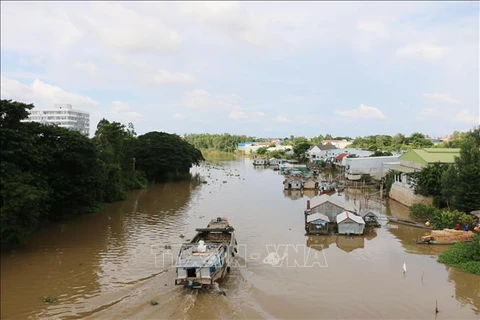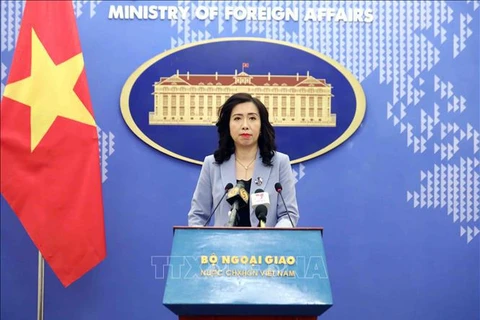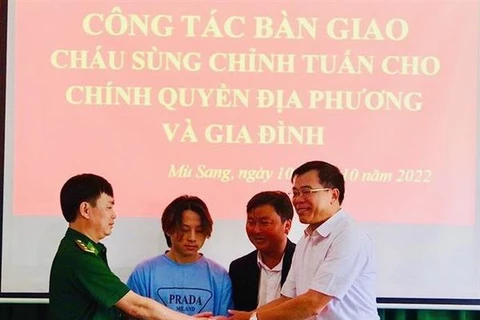Hanoi (VNA) - The Vietnamese Embassy in Angola on October 10 warned Vietnamese citizens to avoid “easy work, high salary” scam in the Democratic Republic of the Congo, Zambia, and the Republic of Congo.
According to Nguyen Tien Binh, Charge d'Affaires at the Vietnamese Embassy in Angola, the Democratic Republic of the Congo, Zambia, and the Republic of Congo, the embassy has received requests for help from Vietnamese citizens stuck in those African countries.
These citizens said that they were tricked into going to work in the above-mentioned countries by offers of high salary by Vietnamese and foreign brokers. Upon arrival, their passports were seized by employers, while their salary was deducted for accommodation and transport expenses. They were even owed wages. Some women were forced to work in karaoke bars or casinos. When they wanted to return to Vietnam, they were told to pay compensation to employers. Most of them do not know foreign languages, so it is very difficult to seek help and protection from the local authorities.
Vietnamese workers in Angola and at home need to carefully check information before deciding to work in these African nations, Binh said.
Along with its warning, the Vietnamese Embassy in Angola is making efforts to protect citizens trapped in the Democratic Republic of the Congo, Zambia, and the Republic of Congo.
Those who need help could contact the Vietnamese Embassy in Angola at 244 922 668 019, or emails vnemb.angola@mofa.gov.vn; and sqvnangola@gmail.com./.
According to Nguyen Tien Binh, Charge d'Affaires at the Vietnamese Embassy in Angola, the Democratic Republic of the Congo, Zambia, and the Republic of Congo, the embassy has received requests for help from Vietnamese citizens stuck in those African countries.
These citizens said that they were tricked into going to work in the above-mentioned countries by offers of high salary by Vietnamese and foreign brokers. Upon arrival, their passports were seized by employers, while their salary was deducted for accommodation and transport expenses. They were even owed wages. Some women were forced to work in karaoke bars or casinos. When they wanted to return to Vietnam, they were told to pay compensation to employers. Most of them do not know foreign languages, so it is very difficult to seek help and protection from the local authorities.
Vietnamese workers in Angola and at home need to carefully check information before deciding to work in these African nations, Binh said.
Along with its warning, the Vietnamese Embassy in Angola is making efforts to protect citizens trapped in the Democratic Republic of the Congo, Zambia, and the Republic of Congo.
Those who need help could contact the Vietnamese Embassy in Angola at 244 922 668 019, or emails vnemb.angola@mofa.gov.vn; and sqvnangola@gmail.com./.
VNA























